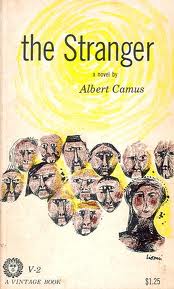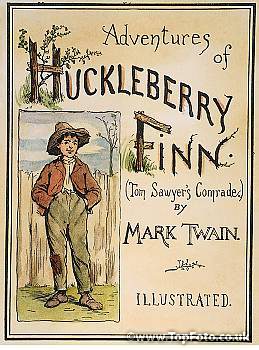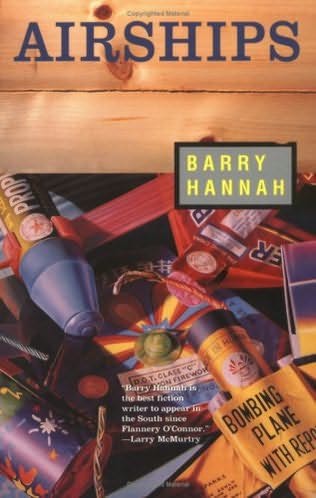Author Photo And Bio
 1. The Brothers Karamazov by Fyodor Dostoevsky (1880). In perhaps the consummate Russian novel, Dostoevsky dramatizes the spiritual conundrums of nineteenth-century Russia through the story of three brothers and their father’s murder. Hedonistic Dmitri, tortured intellectual Ivan, and saintly Alyosha embody distinct philosophical positions, while remaining full-fledged human beings. Issues such as free will, secularism, and Russia’s unique destiny are argued not through authorial polemic, but through the confessions, diatribes, and nightmares of the characters themselves. An unsparing portrayal of human vice and weakness, the novel ultimately imparts a vision of redemption. Dostoevsky’s passion, doubt, and imaginative power compel even the secular West he scorned.
1. The Brothers Karamazov by Fyodor Dostoevsky (1880). In perhaps the consummate Russian novel, Dostoevsky dramatizes the spiritual conundrums of nineteenth-century Russia through the story of three brothers and their father’s murder. Hedonistic Dmitri, tortured intellectual Ivan, and saintly Alyosha embody distinct philosophical positions, while remaining full-fledged human beings. Issues such as free will, secularism, and Russia’s unique destiny are argued not through authorial polemic, but through the confessions, diatribes, and nightmares of the characters themselves. An unsparing portrayal of human vice and weakness, the novel ultimately imparts a vision of redemption. Dostoevsky’s passion, doubt, and imaginative power compel even the secular West he scorned.
 2. As I Lay Dying by William Faulkner (1930). The Bundrens of Yoknapatawpha County have a simple task —to transport their mother’s body by wagon to her birthplace for burial. Faulkner confronts them with challenges of near biblical proportions in this modernist epic that uses fifteen different psychologically complex first-person narrators (including the dead mother) through its fifty-nine chapters. Soaring language contrasts with the gritty sense of doom in this novel that includes the most famous short chapter in literature: “My mother is a fish.”
2. As I Lay Dying by William Faulkner (1930). The Bundrens of Yoknapatawpha County have a simple task —to transport their mother’s body by wagon to her birthplace for burial. Faulkner confronts them with challenges of near biblical proportions in this modernist epic that uses fifteen different psychologically complex first-person narrators (including the dead mother) through its fifty-nine chapters. Soaring language contrasts with the gritty sense of doom in this novel that includes the most famous short chapter in literature: “My mother is a fish.”
 3. The Stranger by Albert Camus (1942). The opening lines—“Mother died today. Or, maybe, yesterday. I can’t be sure”—epitomize Camus’s celebrated notions of “the absurd.” His narrator, Meursault, a wretched little Algerian clerk sentenced to death for the murder, feels nothing: no remorse, love, guilt, grief, or hope. But he’s not a sociopath; he’s just honest. An embodiment of existential philosophy, he believes in no higher power and accepts that we are born only to die. Our only choice is to act “as if” life has meaning and thereby gain some freedom.
3. The Stranger by Albert Camus (1942). The opening lines—“Mother died today. Or, maybe, yesterday. I can’t be sure”—epitomize Camus’s celebrated notions of “the absurd.” His narrator, Meursault, a wretched little Algerian clerk sentenced to death for the murder, feels nothing: no remorse, love, guilt, grief, or hope. But he’s not a sociopath; he’s just honest. An embodiment of existential philosophy, he believes in no higher power and accepts that we are born only to die. Our only choice is to act “as if” life has meaning and thereby gain some freedom.
 4. Stories of Flannery O’Connor (1925–64). Full of violence, mordant comedy, and a fierce Catholic vision that is bent on human salvation at any cost, Flannery O’Connor’s stories are like no others. Bigots, intellectual snobs, shyster preachers, and crazed religious seers —a full cavalcade of what critics came to call “grotesques”—careen through her tales, and O’Connor gleefully displays the moral inadequacy of all of them. Twentieth-century short stories often focus on tiny moments, but O’Connor’s stories, with their unswerving eye for vanity and their profound sense of the sacred, feel immense.
4. Stories of Flannery O’Connor (1925–64). Full of violence, mordant comedy, and a fierce Catholic vision that is bent on human salvation at any cost, Flannery O’Connor’s stories are like no others. Bigots, intellectual snobs, shyster preachers, and crazed religious seers —a full cavalcade of what critics came to call “grotesques”—careen through her tales, and O’Connor gleefully displays the moral inadequacy of all of them. Twentieth-century short stories often focus on tiny moments, but O’Connor’s stories, with their unswerving eye for vanity and their profound sense of the sacred, feel immense.
 5. Blood Meridian: Or the Evening Redness in the West by Cormac McCarthy (1985). D. H. Lawrence famously remarked that the archetypal American hero was a stoic, a loner, and a killer. Cormac McCarthy’s tale of the formation and dissolution of a band of scalp hunters in northern Mexico in the late 1840s embodies that dire maxim. Led by a soldier named Glanton and a mysterious, hairless, moral monstrosity known as the “Judge,” these freebooters wipe out Indians, Mexicans, and each other amidst a landscape of such sublime desolation one feels it leaching into their very souls.
5. Blood Meridian: Or the Evening Redness in the West by Cormac McCarthy (1985). D. H. Lawrence famously remarked that the archetypal American hero was a stoic, a loner, and a killer. Cormac McCarthy’s tale of the formation and dissolution of a band of scalp hunters in northern Mexico in the late 1840s embodies that dire maxim. Led by a soldier named Glanton and a mysterious, hairless, moral monstrosity known as the “Judge,” these freebooters wipe out Indians, Mexicans, and each other amidst a landscape of such sublime desolation one feels it leaching into their very souls.
 6. Adventures of Huckleberry Finn by Mark Twain (1884). Hemingway proclaimed, “All modern American literature comes from . . . ‘Huckleberry Finn.’ ” But one can read it simply as a straightforward adventure story in which two comrades of convenience, the parentally abused rascal Huck and fugitive slave Jim, escape the laws and conventions of society on a raft trip down the Mississippi. Alternatively, it’s a subversive satire in which Twain uses the only superficially naïve Huck to comment bitingly on the evils of racial bigotry, religious hypocrisy, and capitalist greed he observes in a host of other largely unsympathetic characters. Huck’s climactic decision to “light out for the Territory ahead of the rest” rather than submit to the starched standards of “civilization” reflects a uniquely American strain of individualism and nonconformity stretching from Daniel Boone to “Easy Rider.”
6. Adventures of Huckleberry Finn by Mark Twain (1884). Hemingway proclaimed, “All modern American literature comes from . . . ‘Huckleberry Finn.’ ” But one can read it simply as a straightforward adventure story in which two comrades of convenience, the parentally abused rascal Huck and fugitive slave Jim, escape the laws and conventions of society on a raft trip down the Mississippi. Alternatively, it’s a subversive satire in which Twain uses the only superficially naïve Huck to comment bitingly on the evils of racial bigotry, religious hypocrisy, and capitalist greed he observes in a host of other largely unsympathetic characters. Huck’s climactic decision to “light out for the Territory ahead of the rest” rather than submit to the starched standards of “civilization” reflects a uniquely American strain of individualism and nonconformity stretching from Daniel Boone to “Easy Rider.”
 7. One Day in the Life of Ivan Denisovich by Alexander Solzhenitsyn (1962). The author draws on the eight years he spent in Soviet prisons to write this harrowing novel of the Soviet gulags. Inmates and prisoners are always cold, always hungry, always scheming for crumbs, and willing to betray each other for less in this Siberian labor camp. Though brutally dehumanized, many of Solzhenitsyn’s characters remain indomitable, making this novel an indictment of human nature and an ode to the human spirit.
7. One Day in the Life of Ivan Denisovich by Alexander Solzhenitsyn (1962). The author draws on the eight years he spent in Soviet prisons to write this harrowing novel of the Soviet gulags. Inmates and prisoners are always cold, always hungry, always scheming for crumbs, and willing to betray each other for less in this Siberian labor camp. Though brutally dehumanized, many of Solzhenitsyn’s characters remain indomitable, making this novel an indictment of human nature and an ode to the human spirit.
 8. The Sun Also Rises by Ernest Hemingway (1926). Hemingway’s first novel recounts the revels and misadventures of the expatriate community —including the introspective writer Jake Barnes and the tantalizingly elusive divorcée Lady Brett Ashley —in Paris and in Spain’s bullfighting centers. For all their wit, wealth, or social clout and despite their rounds of drunkenness and debauchery as repetitious as the sun’s daily rising, Hemingway’s jaded, morally bankrupt characters can’t get no satisfaction.
8. The Sun Also Rises by Ernest Hemingway (1926). Hemingway’s first novel recounts the revels and misadventures of the expatriate community —including the introspective writer Jake Barnes and the tantalizingly elusive divorcée Lady Brett Ashley —in Paris and in Spain’s bullfighting centers. For all their wit, wealth, or social clout and despite their rounds of drunkenness and debauchery as repetitious as the sun’s daily rising, Hemingway’s jaded, morally bankrupt characters can’t get no satisfaction.
 9. Airships by Barry Hannah (Why not?) (1978). Barry Hannah can make readers laugh about the grimmest subject while never for a second losing sight of the essential horror. In this story collection, the Mississippi writer creates a cast of scarred, hyperkinetic characters —including a Confederate soldier recalling the tragedy and glory of war to a contemporary man obsessed with his estranged wife —who are stumbling toward illumination.
9. Airships by Barry Hannah (Why not?) (1978). Barry Hannah can make readers laugh about the grimmest subject while never for a second losing sight of the essential horror. In this story collection, the Mississippi writer creates a cast of scarred, hyperkinetic characters —including a Confederate soldier recalling the tragedy and glory of war to a contemporary man obsessed with his estranged wife —who are stumbling toward illumination.
 10. War and Peace by Leo Tolstoy (1869). Mark Twain supposedly said of this masterpiece, “Tolstoy carelessly neglects to include a boat race.” Everything else is included in this epic novel that revolves around Napoleon’s invasion of Russia in 1812. Tolstoy is as adept at drawing panoramic battle scenes as he is at describing individual feeling in hundreds of characters from all strata of society, but it is his depiction of Prince Andrey, Natasha, and Pierre —who struggle with love and with finding the right way to live —that makes this book beloved.
10. War and Peace by Leo Tolstoy (1869). Mark Twain supposedly said of this masterpiece, “Tolstoy carelessly neglects to include a boat race.” Everything else is included in this epic novel that revolves around Napoleon’s invasion of Russia in 1812. Tolstoy is as adept at drawing panoramic battle scenes as he is at describing individual feeling in hundreds of characters from all strata of society, but it is his depiction of Prince Andrey, Natasha, and Pierre —who struggle with love and with finding the right way to live —that makes this book beloved.